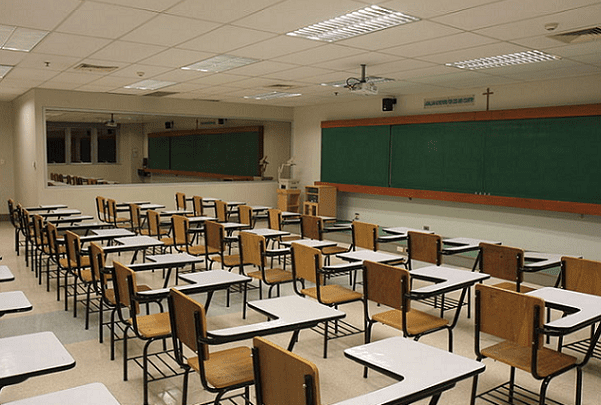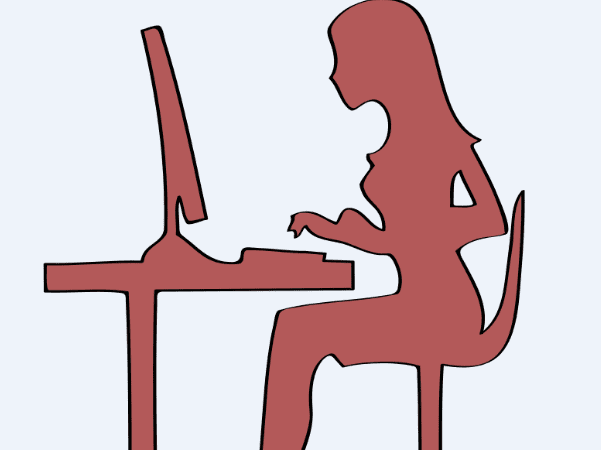Introduction: In this article – part of an ongoing “Introduction to Genealogy” series – Gena Philibert-Ortega suggests ways genealogists can help others with their family history research. Gena is a genealogist and author of the book “From the Family Kitchen.”
Genealogy is a great pursuit and it’s made even greater due to the help that family historians are willing to provide. Experienced researchers volunteer at Family History Centers, libraries, and genealogy societies. They answer research inquiries by mail or email and provide online assistance via message boards and Facebook groups. Today’s family historians benefit from the ability to access help online and in person quickly and easily.
Numerous articles are written to provide new researchers guidance in how to ask questions that get the answers they need. Knowing how to ask the right questions means receiving answers that lead to research success (see: Genealogy 101: How to Get Genealogy Help). It’s important for researchers to know how to ask – but it’s equally important for helpers to know how to provide the help researchers need.
Are you interested in helping others as a volunteer or as a professional genealogist? Consider some of the following tips.
LISTEN
I know this sounds obvious, but I’m serious. A newbie genealogist comes to you needing help. Make sure that when this happens you really listen to what they have to say.
On a recent trip, I needed to make some photocopies for a presentation. I asked the hotel clerk about nearby stores that made photocopies. Unfortunately, because of the way I asked and what she heard, I walked away with no answers.
I started out by asking “where can I make some copies?” She didn’t respond so I decided to continue by adding that I needed a place like [insert big box office supply store here]. She then quickly answered that there was no such store in town and I’d need to go to the next major city. If I hadn’t added the name of a chain office supply store, she may have eventually told me that a print shop was actually behind the hotel.
Now, part of this miscommunication was my fault for not giving her a few seconds to think. Because I kept talking, thinking it would make her answer easier, she only heard that last part of my question – that I wanted to know the location of a chain office supply store. Instead, I should have given her time to think because maybe she would have eventually asked whether I needed photocopies or office supplies.
It’s important when someone asks us for help that we completely listen to their question, reiterate what they are asking, and ask follow-up questions that would help clarify what they are really needing. Too often we don’t really listen to other people because we are formulating our response as they are speaking.
When someone asks me a genealogy question, I’ll rephrase what they asked me, such as replying: “So, you need a birth certificate for Kansas?” Then I’ll ask a follow-up question like: “Where have you looked?” or “Have you tried [specific source]?” It helps me to understand what they really need, and not frustrate them or waste their time by giving them advice for something they’ve already done.
Listening isn’t just restricted to actual voice communication. When answering a question posted on a message board, it’s important to re-read the question so that you understand exactly what they are asking. You can also post follow-up questions to clarify what information they need. One concluding sentence I use after I answer an online question is: “Does that answer your question?” I do this because I want to make sure that I truly gave them the information they needed.
Don’t Know? Don’t Guess!
Sometimes in our rush to help people we may not be giving them the best possible advice. I’ve seen this over and over again when someone posts an online request like: “Help! I can’t find my ancestor’s birth certificate from Texas.” Then a genealogist replies with a resource that sounds good but doesn’t have what the person needs, thus sending the person asking the question on a wild goose chase.
You may know a lot of great resources, but before suggesting something that isn’t relevant, check it out. Make sure that is the best resource for the person asking. It’s ok to say: “I’m not sure but let me get back to you” before suggesting an answer. They’ll appreciate your effort to provide them with the most accurate information.
Let Others Know Your Expertise
We can’t know everything about all aspects of genealogy. We all have some gaps in our knowledge. But most likely there are a few aspects of research or topics that you love that you have a great deal of expertise in. Maybe you have done a great deal of Native American research. Perhaps all of your research centers on a specific country. Maybe you are a DAR member and have helped dozens of people with their lineage applications.
Whether your expertise comes from previous education, your occupation or experience, make sure to let others know what you specialize in. You may have knowledge that they need but don’t know you possess. Let members of your genealogy society know your expertise by leading a Special Interest Group (sometimes called a SIG) on the topic, providing a presentation, or writing an article for the society newsletter. Become a member of a Facebook group focused on the type of research you are especially knowledgeable about. To find genealogy-related Facebook groups, see Katherine R. Willson’s Genealogy on Facebook List.
Help for Helpers
If you’re helping others with their genealogy, consider building a network of people you can go to with your own questions – and even learn from. No one is an island, and networking is an important part of genealogy. I always enjoy hearing others discuss their research experience, either formally through presentations at conferences or informally over casual meetings. These interactions can enhance our own knowledge and resource ideas. My personal professional network includes not only genealogists but a private investigator, a professional photographer, a gemologist, librarians, archivists, and historians. I also take advantage of the life and work experience of family members and friends who provide expertise on everything from working for the railroad to being a teenager during World War II.
How can you meet other researchers? You can join genealogy and historical societies. Attend a conference or seminar (remember to bring business cards and introduce yourself). Don’t forget to follow researchers on social media websites like Facebook or Twitter. Lucky for us, genealogy and history education is everywhere, both virtually and in the real world.
Thanks for Helping!
Do you answer other people’s genealogy research questions? Thank you! We all benefit from the generosity of our fellow researchers. If you’ve been researching for a while, consider providing your expertise to someone who needs it.

